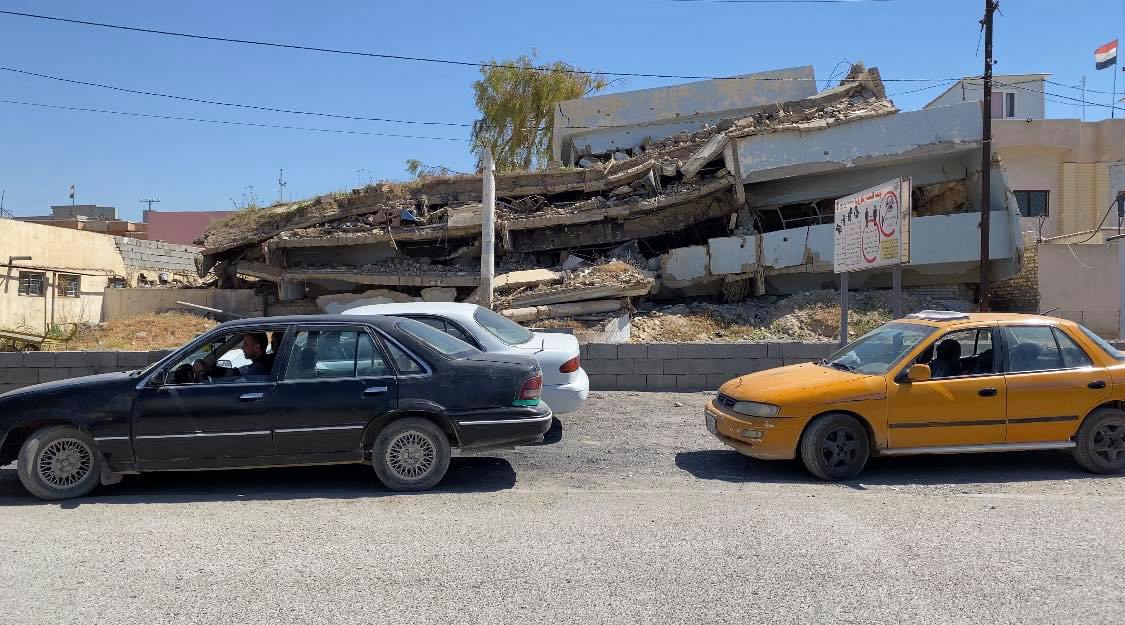Political conflicts and administrative issues have increased the suffering of Jalawla residents, while the sub-district is yet to recover from war devastation and lack of services.
Jalawla was retaken from Islamic State (IS) group control six years ago, however, the effects of the war are still visible throughout the town; thousands of homes were destroyed with no compensations offered to war-stricken families.
The sub-district associated with Diyala’s Khanaqin district and is a disputed territory according to the Iraqi constitution, is called Jalawla by the Arabs, the Kurds have named it Gulala, while the Turkmens call it Qaraghan.
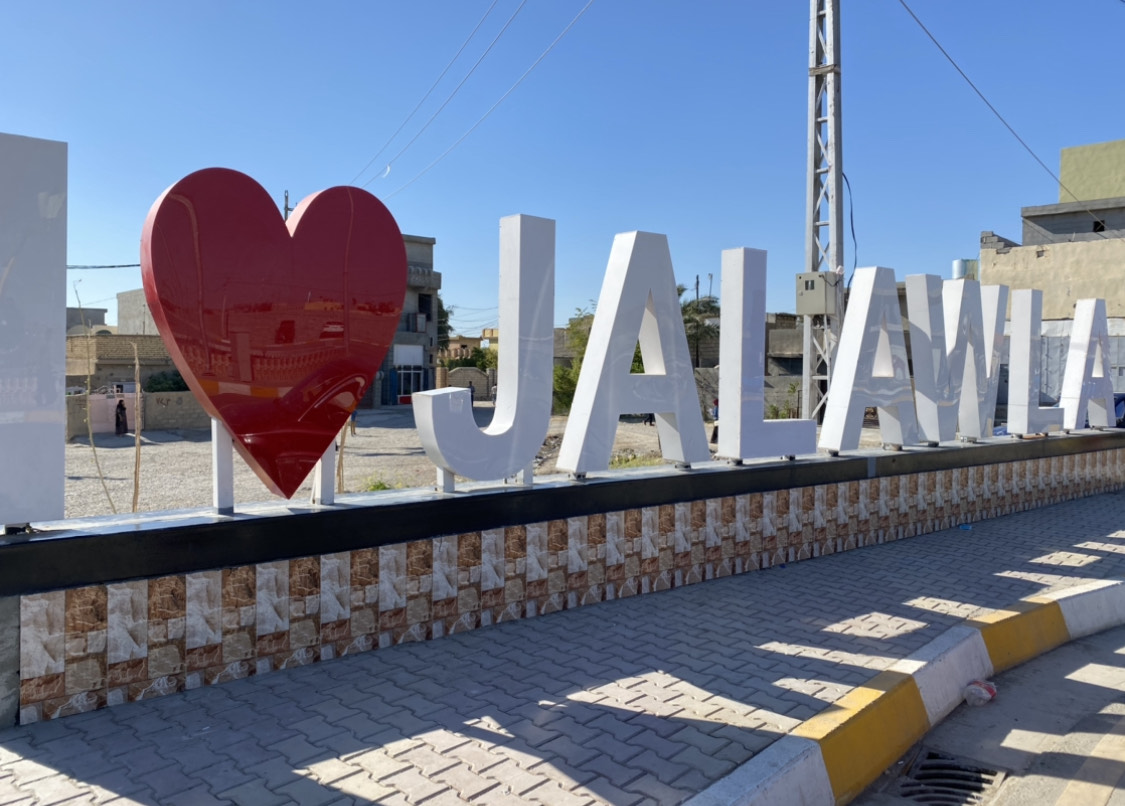
Diyala, March 2021, “I love you Jalawla” sign installed on a public street in Jalawla sub-district. Photo by Amir Khanaqini.
Administrative issues
Jalawla sub-district commissioner has been unable to practice his duties after protesters shut down the building of the sub-district commissioner’s office in May 2020, demanding the sacking of the sub-district commissioner.
Yaqub Al-Luhaibi, an Arab, was appointed Jalawla sub-district commissioner as the candidate of the Patriotic Union of Kurdistan (PUK) in 2015 after Jalawla was recaptured from the Islamic State group.
Al-Luhaibi was arrested twice after being accused of involvement in the demolition of houses built on government properties in Jalawla’s Al-Tajnid neighborhood, but was later released. He currently resides outside Jalawla, while Ahmed Zarkushi has been appointed as acting sub-district commissioner.
Civil rights activist Hilal Sattar says, “the acting sub-district commissioner is unable to perform his duties convincingly as he is only available at the office only a day or two in the week.”
The sub-district office receives on a daily basis a significant number of citizens for paper works that require the commissioner’s approval.
Speaking to KirkukNow, Sattar indicated that they were engaged in a campaign aimed to turn Jalawla into a district, in a bid to reduce administrative problems and “rescue Jalawla from injustices and marginalization”.
However, the move requires a law issued by the Iraqi parliament.
“We work to turn Jalawla into a district so that a bigger budget would be allocated for it, since it was most affected by the war against IS and the incidents followed, according to Hilal Sattar.
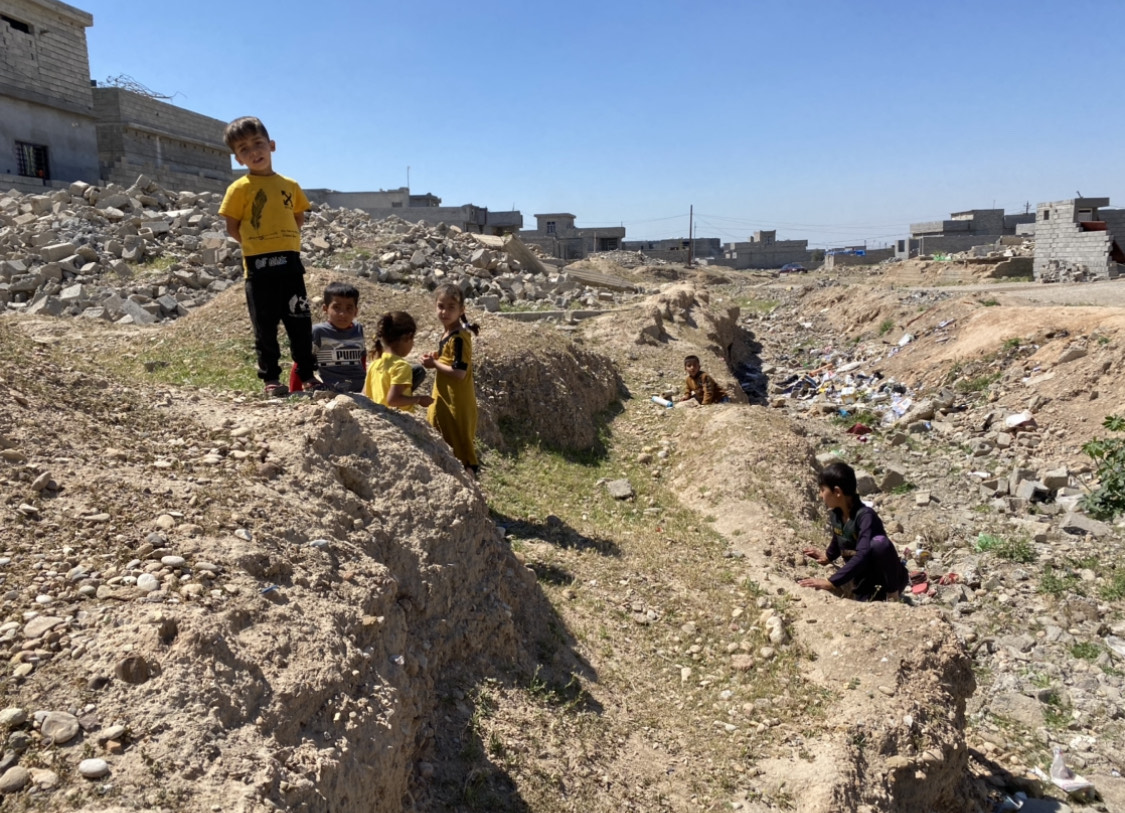
Diyala, March 2021: Children playing amid rubble of destroyed houses in Jalawla. Photo by Amir Khanaqini.
War legacy and lack of reparation
Jalawla residents have not been compensated for the losses they suffered during the war and the events the area had witnessed.
“The neighborhood we used to live in was totally destroyed, all the houses were leveled to the ground during the military operations to liberate Jalawla”, Nasrat Shalal, a resident of Al-Tajnid neighborhood told KirkukNow.
KirkukNowfollow-ups indicate that a total of 4,000 houses and other civilian properties were destroyed during the confrontations with IS.
The Islamic State group controlled Jalawla in mid-2014, but the Peshmarga forces recaptured the town at the end of the same year.
Nasrat added, “we applied for compensation three years ago, yet we received nothing, the whole thing is excruciating bureaucracy that leads you nowhere.”
People whose losses are estimated at more than 30 million Iraqi dinars need to finish their paper-work in Baghdad, however those whose losses are less than 30 million Iraqi dinars, are referred to subcommittees in their own town.
Lou’aiPallani, member of the sub-committee assigned to compensate affected families in Jalawla told KirkukNow, “seven thousand people have applied for compensation for the losses they had suffered during the IS war and the military operations.”
The members of the sub-committee are available in Jalawla only one day in the week.
“our sub-committee can handle 25 applications a day. Currently, we have nearly three thousand other applications that we need to send to the higher committees in Baquba, the provincial capital of Diyala”, Pallani explained.
Pallani acknowledged that the work of the committee proceeds “in a slow manner”, noting that what further sets back the process is that only the federal government in Baghdad has the authority to disburse the compensations.
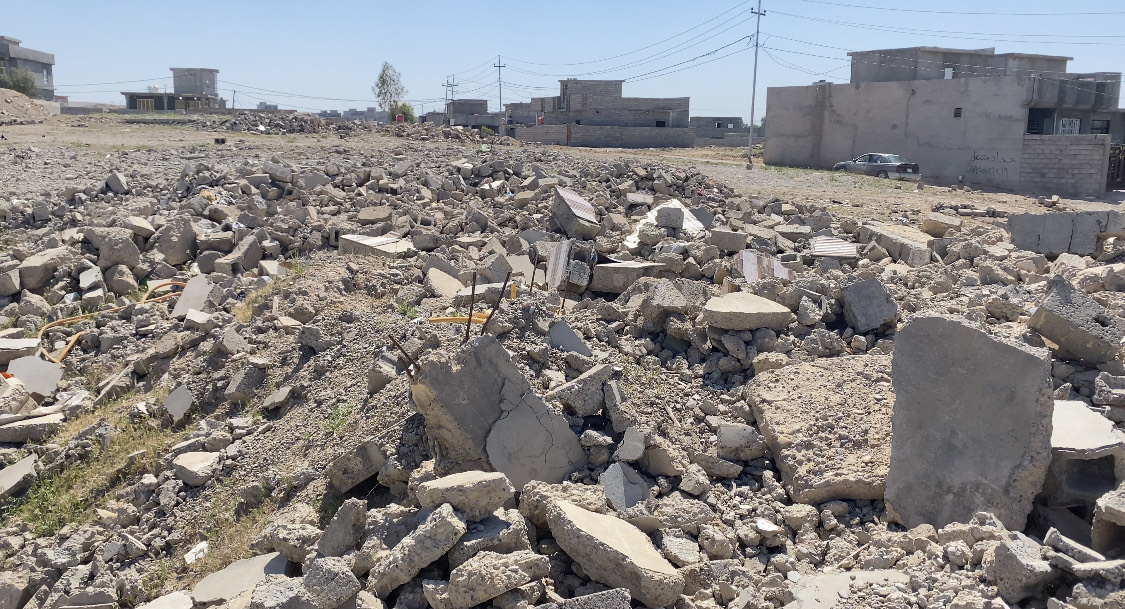
Diyala, March 2021: wreckage of a house leveled to the ground during the war against ISIS. Photo by Amir Khanaqini.
Jalawla local officials face lawsuits
In addition to Jalawla sub-district commissioner, many security and party officials face lawsuits, mainly due to the political conflicts in Jalawla.
Yaqub Al-Luhaibi, who is not certain if he would stay as sub-district commissioner told KirkukNow, “the lawsuit against me has been politicized, the aim is to force me out, I plan to return to Jalawla after my vacation is over, but I am not sure if I would stay in my position or ask for retirement.”
Al-Luhaibihas constantly denied involvement in the demolition of houses in Al-Tajnid neighborhood saying “those who filed a lawsuit against me have themselves demolished my house.”
The situation escalated further following the 2017 Kurdistan Region independence referendum, when pro-Kurdistan Region government forces withdrew from Jalawla and were replaced by Iraqi federal government forces.
Khalil Khudadad, head of PUK’s organization committee in Jalawla is also facing charges and an arrest warrant was issued against him. Besides denying allegations about his involvement in the demolition of houses, Khudadad accuses an armed group in Jalawla of attacking and threatening him.
“There are political motives behind the lawsuit and the arrest warrant, they want to drive us out of Jalawla”, according to Khalil Khudadad.
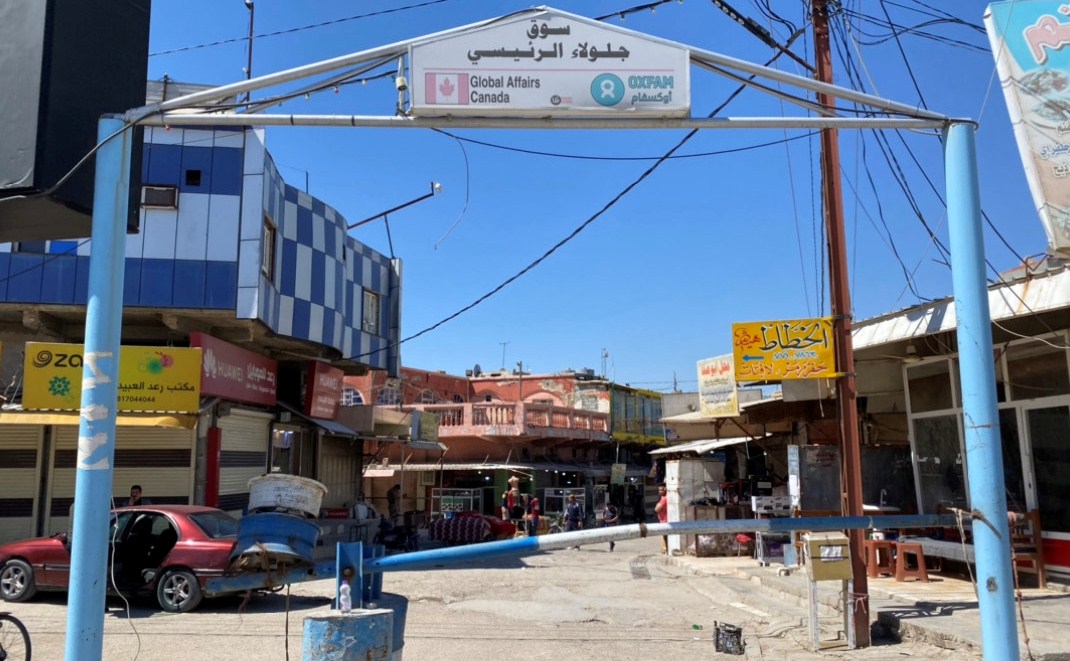
Diyala, March 2021: The main gate of Jalawla popular market. Photo by Amir Khanaqini.
The security situation
Jalawla has witnessed a string of security incidents over the past years, including bomb blasts and armed attacks targeting civilians and security personnel as well.
Despite the persistence of such attacks, security and military officials avoid giving statements about these incidents and their ability to protect citizens to the media.
Ahmed Somar, an activist who lives in Jalawla, said “the situation further escalated in the past few months, the attacks resulted in tens of casualties.”
Iraqi security forces launched several operations, reiterating after each one “the elimination of IS threats”.
Somar indicated that “the situation improved after the conclusion of the military operation, particularly in the Sheikh Bawa area which was a flashpoint for IS attacks”. Somar said he hoped the situation would stay the same, “we want to live in peace and be able to rebuild our area.”
Security instability was until the end of last year a major obstacle hindering the return of IDPs to their homes in Jalawla, before the government decided to close all camps pressuring IDPs to return to their homes in other parts of Iraq.
Local police is taking over security responsibility in the center of Jalawla, while the Iraqi army forces and the Popular Mobilization Forces (al-Hashd al-Sha’bi) are stationed in the areas around the sub-district.

